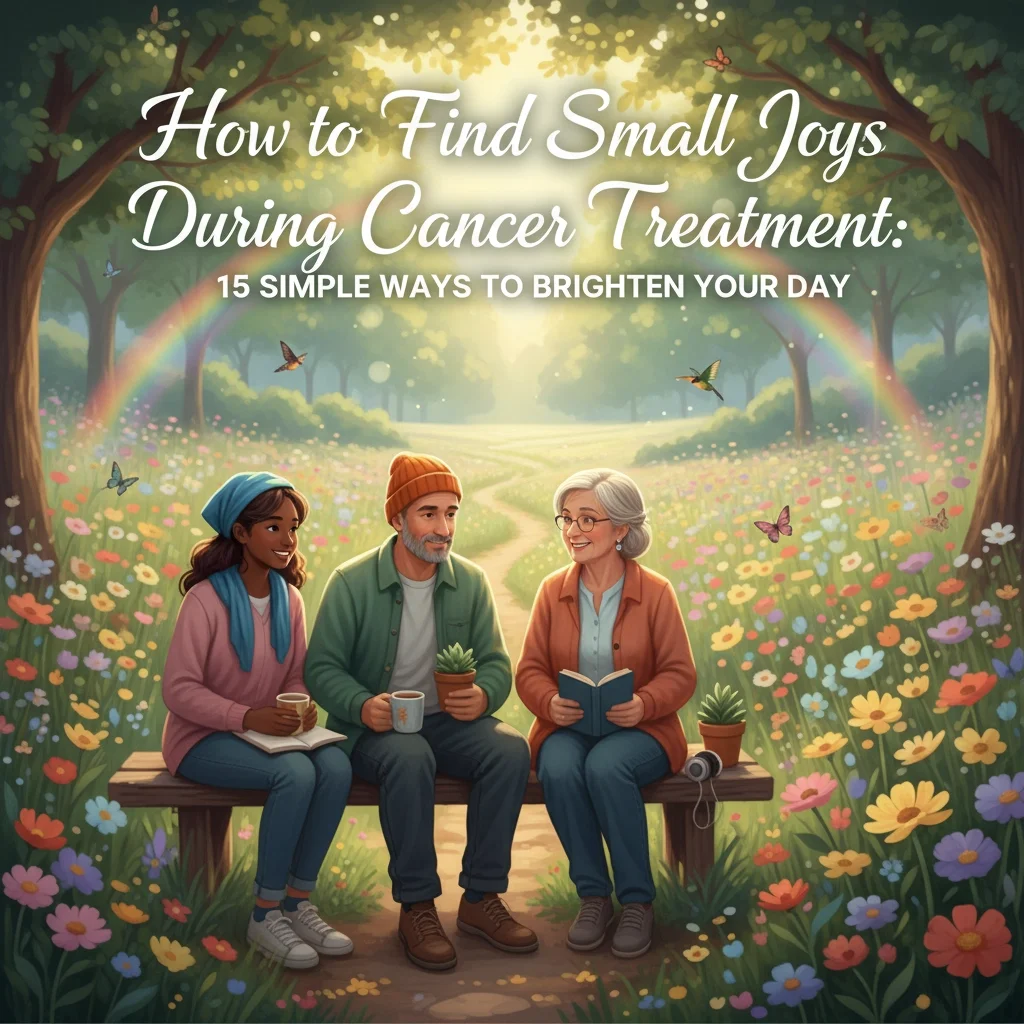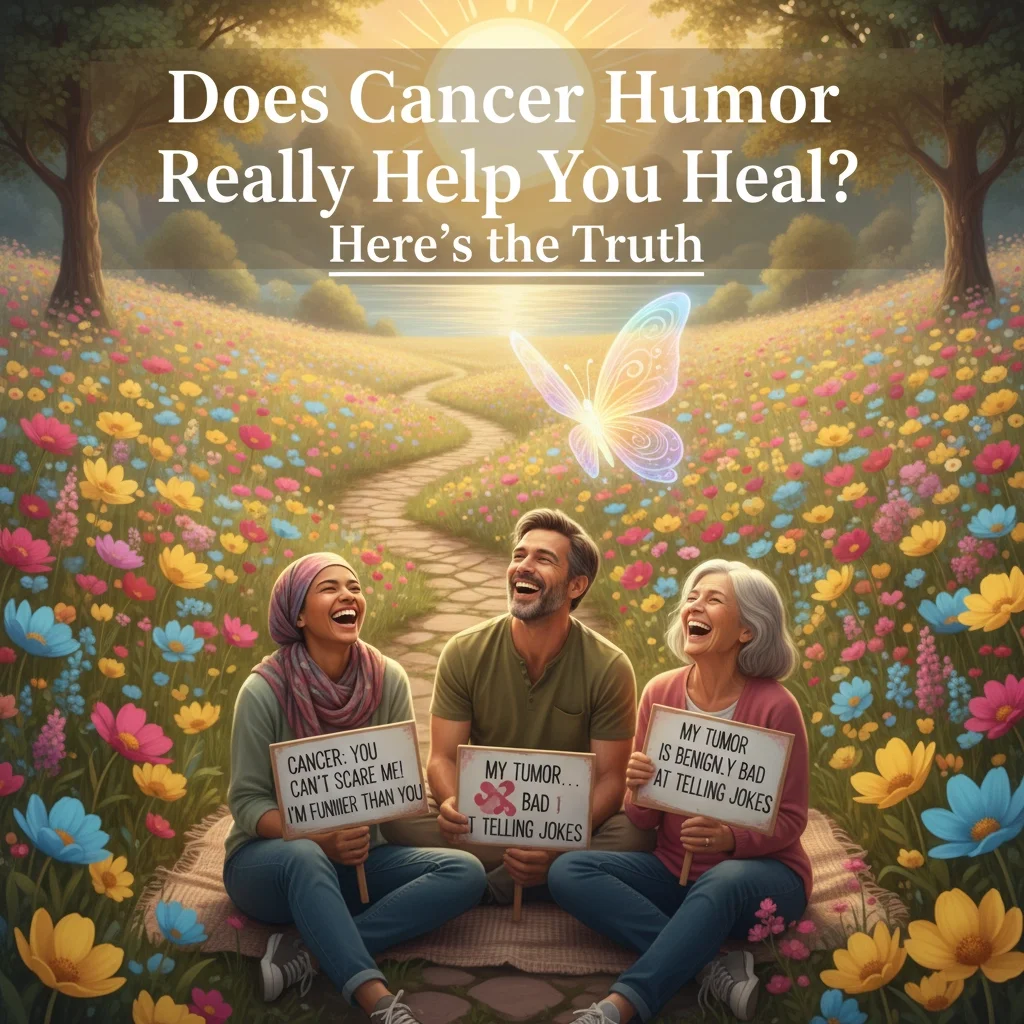How to Find Small Joys During Cancer Treatment: 15 Simple Ways to Brighten Your Day
How to Find Small Joys During Cancer Treatment: 15 Simple Ways to Brighten Your Day
Does Cancer Humor Really Help You Heal? Here's the Truth
The day you're sitting in that sterile waiting room, clutching a cup of terrible coffee while someone cracks a joke about hospital gowns, you might wonder: Is this actually helping, or are we all just pretending everything's fine?
Here's the thing about cancer humor, it's complicated, it's personal, and yes, it really does help you heal. But not in the way you might think.
The Short Answer: Yes, But Let's Get Real About It
Humor genuinely helps cancer patients, but we need to be crystal clear about what it can and cannot do. Laughter won't cure your cancer, let's just get that out there. But extensive research shows that humor provides real, measurable physical and emotional benefits during treatment and recovery.
Think of it this way: humor isn't your medicine, but it's definitely part of your healing toolkit.
What Your Body Actually Does When You Laugh
When you laugh, really laugh, your body becomes a tiny pharmacy of good stuff. We're talking measurable, scientific changes that happen inside you.
Laughter lowers your stress hormones like cortisol and epinephrine while boosting the disease-fighting substances your body needs. It's like giving your immune system a gentle nudge in the right direction. The physical act of laughing produces endorphins, which are basically your body's natural pain pills.
Here's a stat that'll blow your mind: one minute of anger weakens your immune system for 4 to 5 hours, but one minute of genuine laughter boosts it for more than 24 hours. Your body literally chooses healing when you choose joy, even for just a moment.
In one study at a rehabilitation hospital, 74% of patients agreed that laughing sometimes works as well as actual pain medication. That's not wishful thinking, that's your brain chemistry working for you instead of against you.
Real Patients, Real Stories
Let's talk about what cancer patients actually say about humor, because their voices matter more than any research study.
In a recent survey of people undergoing radiotherapy, 87% felt that humor from their doctors was "somewhat" or "very" important during visits. Nearly 80% said it helped reduce their anxiety, and 70% said humor actually helped them remember what their medical team told them.
But here's what really gets me: more than 60% of these patients said they used humor "frequently" or "always" when talking about their own cancer. They weren't waiting for someone else to make them laugh, they were actively choosing to find lightness in their darkest moments.
As one medical oncologist put it perfectly: "For patients, laughter is a sort of triumph over disease. It's evidence that cancer can't take the happiness or joy out of your life."
How Humor Works Its Magic (The Three-Part System)
Therapeutic laughter hits you in three different ways, and they all work together:
Wit (the thinking part): When you "get" a joke or find something cleverly funny, your brain lights up in a good way. It's like a mental reset button.
Mirth (the feeling part): That warm, joyful emotion you feel when something genuinely amuses you. It's different from forced happiness, this is the real deal.
Laughter (the body part): The actual physical response, your breathing changes, your muscles relax, those endorphins start flowing.
When all three work together, something beautiful happens. You regain a sense of control over circumstances that feel completely out of control. If you can laugh at yourself or your situation, you create psychological distance from your fate. You're not denying reality, you're choosing how to respond to it.
Your Doctor Is Probably Using Humor Too (And That's Good)
Turns out, your medical team gets this. A survey of oncologists found that 71% use humor sometimes with patients, and another 26% use it frequently. What's even better? Patients usually start the jokes themselves, 76% of doctors reported their patients initiating humor during visits.
Doctors have figured out when humor helps most: breaking the ice during tense moments, downplaying stressful situations, or just helping everyone in the room breathe a little easier. They're not cracking jokes while delivering bad news or discussing life-or-death decisions, but they recognize that appropriate humor can be genuinely therapeutic.
The Important Stuff Humor Can't Do
Real talk: we need to be honest about humor's limitations, because setting unrealistic expectations helps no one.
Humor is complementary medicine, not alternative medicine. It works alongside your treatment, not instead of it. You can't laugh your way out of chemotherapy, and that's not what anyone's suggesting.
Also? Forced laughter doesn't work the same way. If you're having a terrible day and someone tells you to "just think positive," that's not therapeutic humor, that's toxic positivity, and it's not helpful. The goal isn't to be perpetually cheerful. The goal is to allow genuine moments of laughter and levity to serve as little restorative breaks during an incredibly difficult journey.
Making Humor Work for You (Not Against You)
So how do you actually use this information? Here are some gentle ways to invite more healing laughter into your cancer experience:
Follow your instincts. If something genuinely makes you smile or laugh, lean into it. Your body knows what it needs.
Don't perform for others. You don't owe anyone a cheerful attitude. Real therapeutic humor comes from authentic moments, not forced performances.
Find your people. Some friends will get your dark cancer humor, others won't. Spend time with the ones who do.
Permission to be selective. Not every moment needs to be lightened. Sometimes you need to feel the weight of what you're going through, and that's completely valid.
Small doses count. You don't need belly laughs every day. A small smile at something ridiculous, a gentle chuckle at life's absurdity, it all adds up.
The Bottom Line
Does cancer humor really help you heal? Absolutely. Will it cure your cancer? No, and anyone who suggests otherwise is selling you something.
But here's what humor can do: it can ease your pain, reduce your anxiety, boost your immune system, and remind you that cancer hasn't stolen your ability to find joy. It can help you remember information better, connect with your medical team, and feel a little less alone in this experience.
Most importantly, humor gives you back a piece of yourself that cancer tries to take: your agency. When you choose to laugh, you're choosing how to respond to your circumstances. You're saying, "This is hard, and it's also not the whole story."
If you've been wondering whether it's okay to laugh during cancer treatment, or if finding moments of levity makes you somehow less serious about your health: stop wondering. Your laughter is part of your healing. Your joy is part of your strength. And your humor? It's one of the most human things you can hold onto during an experience that sometimes feels anything but.
Because at the end of the day, we're all just figuring this out together: and sometimes, the best medicine really is learning to laugh at the beautiful absurdity of it all.
Be a Support: The Ultimate Free Cancer Patient Care Guide
Caring for someone with cancer is a journey like no other. Some days feel like small victories and others leave you exhausted and unsure. As a caregiver you want to do it all right.
How Can Best Breast Cancer Books Help You in Your Journey
The day “breast cancer” becomes part of your story, everything changes. Suddenly, there are appointments to keep, treatments to learn about, emotions you didn’t expect, and a hundred questions no one seems to answer in the same way.



